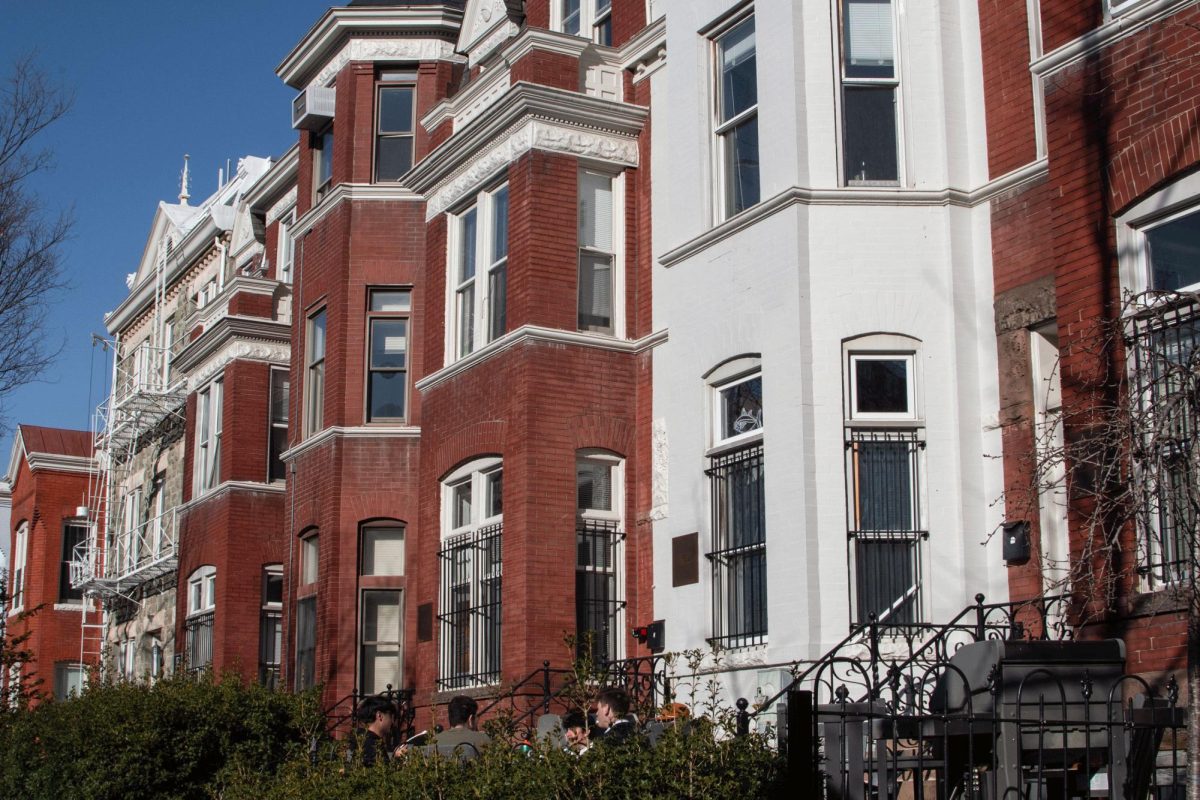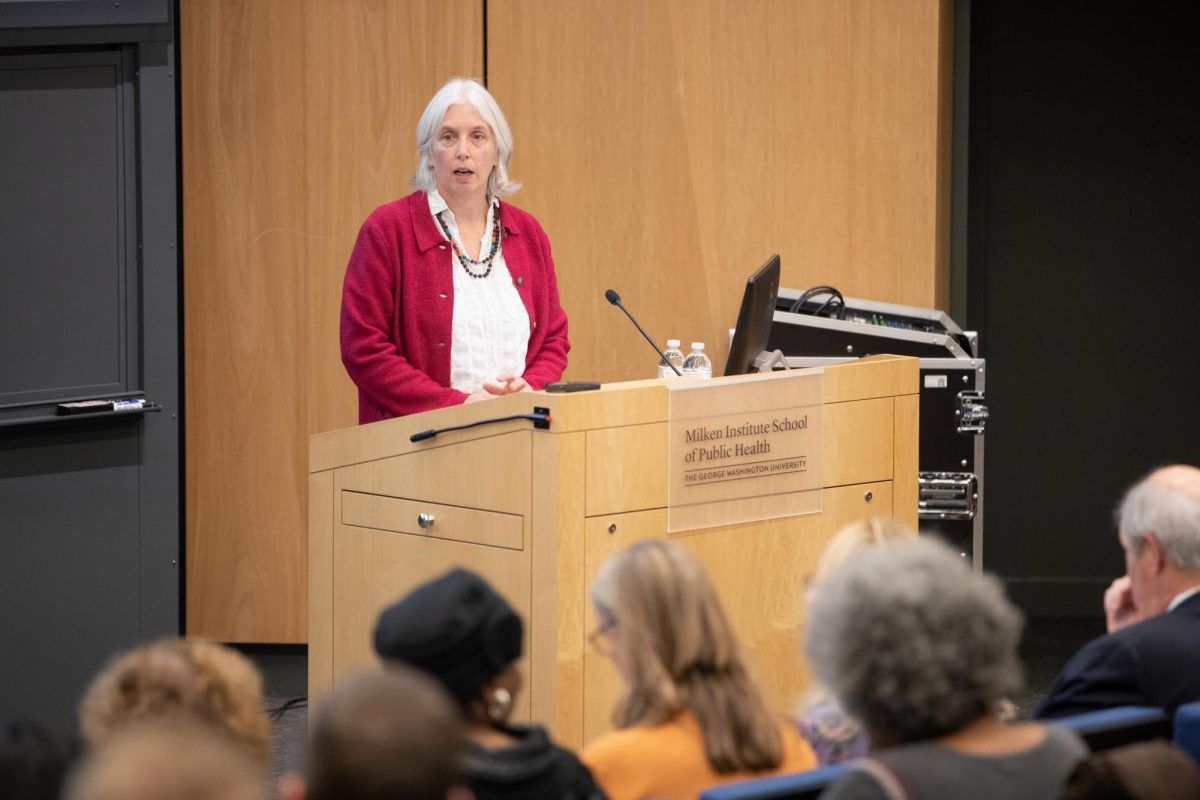The GW Law School took significantly fewer evening students this year in an attempt to combat an eight-place drop in the U.S. News and World Report Rankings, a school dean told alumni on Friday.
Senior Associate Dean Greg Maggs told about a dozen law school alumni at “The State of Law School” address that the school’s fall from 20th to 28th was caused mainly by an unannounced change in the way U.S. News and World Report tracks part-time law student GPAs.
“U.S. News, for the first time, without giving us any notice, said they wanted to count full-time and part-time students mixed together,” Maggs said. “Both our GPA and our LSAT [scores] fell substantially from previous years.”
Maggs said taking fewer evening students was a short-term solution to getting back up the U.S. News Ranking.
“We’ve been able to address that in a very simple way,” Maggs said. “We’ve taken less evening students.”
Maggs said the drop could also be attributed to the faculty-student ratios, which count adjunct professors as less than full-time professors, leaving GW Law’s official ratio at 16 students to every one teacher.
“It’s a very unfair system, where we have 2,000 students and 480 full-time and part-time faculty and yet we’re told our student-teacher ratio is 16 to one when really it’s five to one,” Maggs said. “We hired six new professors last year and a number of visiting professors. Those numbers will be higher.”
In the end, Maggs expressed uncertainty surrounding the exact impact the drop could have on the law school’s reputation and future admissions figures.
“I don’t think that many people really care that much about it, we have great yield with the class coming in,” Maggs said. “The thing that I’m worried about most is the current college seniors who are thinking about where to apply. We might be off their radar screen and that might provide a bad year for us this year.”
The rankings discussion was prompted by a question from alumnus Carlos Lucero, who graduated from the law school in 1964.
“We had a disastrous fall in the U.S. News and World Report,” Lucero said. “How do we correct that? What happened?”
Lucero said the drop might have been “a statistical quirk” and said he was satisfied by Maggs’ explanation of its cause, but also said the school’s national reputation is integral to job placement for graduates.
“Of course it’s concerning because it effects the overall reputation of the law school and anything that effects the overall reputation of the law school, whether it’s a perception or reality, nonetheless has a ripple effect throughout the country when you’re a national law school like this,” Lucero said. “The lesser the reputation of your school is in an aggressively difficult job market, the more difficult it becomes for students to get a job.”






